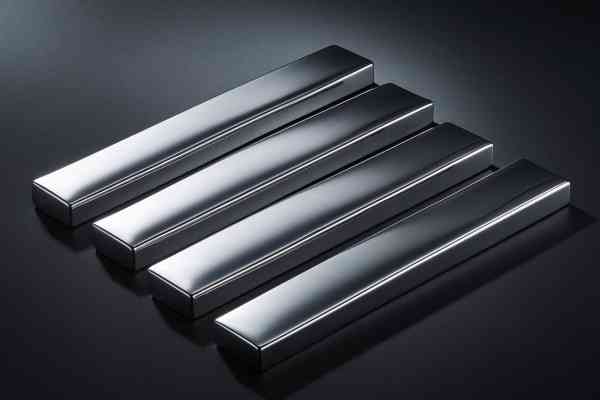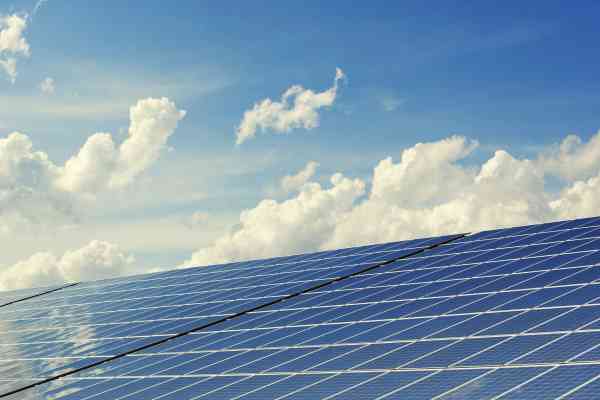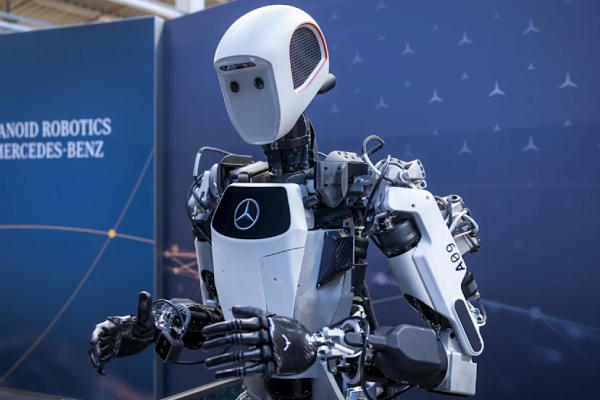December 2nd, 2024 | 07:00 CET
Rivian, First Hydrogen, Volkswagen AG – Expansion continues
In terms of sales, the automotive industry is the largest manufacturing sector and by far the most significant industrial sector in Germany. However, German carmakers are currently in crisis and unable to escape the negative headlines. They are falling behind, especially when it comes to vehicles with alternative drive systems. In recent years, companies excelling in this area have emerged, offering enormous potential for share price growth due to their promising future prospects.
time to read: 4 minutes
|
Author:
Stefan Feulner
ISIN:
Rivian Automotive | US76954A1034 , First Hydrogen Corp. | CA32057N1042 , VOLKSWAGEN AG VZO O.N. | DE0007664039
Table of contents:

"[...] We can convert buses and trucks to be completely climate neutral. In doing so, we take a modular and incremental approach. That means we can work with all current vehicle types and respond to new technology and innovation [...]" Dirk Graszt, CEO, Clean Logistics SE
Author
Stefan Feulner
The native Franconian has more than 20 years of stock exchange experience and a broadly diversified network.
He is passionate about analyzing a wide variety of business models and investigating new trends.
Tag cloud
Shares cloud
Rivian with billion-dollar injection
"Make America great again!" is a slogan that has been used several times in US presidential campaigns. Used prominently by Ronald Reagan in his 1980 campaign, Donald Trump made it his main motto in his 2016 campaign and also dusted it off again for his latest coup in November of this year.
The aim of the phrase is to promote the domestic economy, whatever the cost. In addition to imposing tariffs on imports from Canada, Mexico, and China, subsidies in the form of loans to domestic companies are on the agenda. To promote the electric vehicle industry, the manufacturer Rivian received a preliminary commitment for a loan of up to USD 6.6 billion from the US Department of Energy's Advanced Technology Vehicle Manufacturing Loan Program. In addition to Rivian, Tesla and General Motors have already been granted similar financial support.
The loan will be provided primarily to support the construction of a new manufacturing facility in Stanton Springs North, Georgia. This project aims to significantly increase local production capacity to better meet demand in the US market and internationally. Rivian plans to manufacture its mid-size platform at this new factory. The facility will be built in two phases, with an annual production capacity of 400,000 vehicles to be achieved upon completion. The first phase is expected to be completed by 2028 and will create around 7,500 new jobs in Georgia, with a further 2,000 jobs in the construction sector.
From a technical analysis perspective, Rivian's stock is approaching a critical resistance level. At USD 12.23, the price is close to its established downward trend since November 2021. A sustained break above the USD 13.62 mark would generate a strong buy signal, potentially driving the stock toward its previous annual high of USD 18.86 in the short term.
First Hydrogen – Poised for a rebound
After hydrogen fuel cell stocks were plagued by heavy losses on the stock market in recent months, an end now seems to be in sight, and many companies such as Bloom Energy, Fuelcell, and PowerCell Sweden formed a viable bottom from which a rebound could subsequently start. For the hydrogen innovator based in Vancouver and London, the indicators in particular are also pointing to an imminent turnaround. The trend-following MACD has been showing positive divergences on a weekly basis since June and is now near the zero line, close to generating a buy signal. The Relative Strength Index (RSI), at 34 points, is also on the verge of a bullish signal.
Fundamentally, the signals for expansion have been green for quite some time. Germany has been chosen as the first European target market for the integration of fuel cell propulsion into existing vehicle platforms of a major German manufacturer, with the aim of establishing a high-performance commercial vehicle at a selling price of around EUR 50,000.
In addition to Europe, First Hydrogen also plans to expand into North America. A vehicle assembly plant is to be built in Shawinigan, Quebec, that will produce up to 25,000 vehicles annually for distribution throughout North America. In addition, a 35 MW plant for the production of green hydrogen is to be built at the same location.
The production plant is set to utilize advanced electrolysis and supply the Company's hydrogen fuel cell vehicles and other hydrogen-powered vehicles and applications in the Montreal-Quebec City area.
Volkswagen AG – Potential billion-dollar fine
German automakers are currently in a severe crisis, while producers like Tesla and BYD remain in the fast lane. To ensure the competitiveness of their electric vehicles, the Wolfsburg-based company recently entered into a deal with Tesla competitor Rivian and increased its planned joint venture by an additional USD 800 million, bringing the total to USD 5.8 billion.
This collaboration focuses on software, control computers, and network architecture and is said to be based in Palo Alto, California.
The joint venture is intended to give VW access to the Americans' electrical and software architecture. New VW electric vehicles will gradually be converted to Rivian's technology and software, starting with the first models expected in 2027. The new electric architecture will cover all vehicle classes, from microcars to luxury sedans and sports vehicles, which should lead to large unit volumes and decreasing costs.
While Volkswagen is working on its US expansion, it faces the threat of a billion-dollar fine due to possible tax evasion in India. VW operates two plants in India, where Skoda, Audi and VW models are built.
According to a 95-page report by Indian customs authorities dated September 30 and obtained by Reuters, the Company has underpaid a total of around USD 1.4 billion in import duties since 2012. VW is accused of deliberately circumventing customs regulations by sending vehicle parts for assembly in India in separate shipments. This allowed VW to claim the lower tariff for individual parts instead of paying the higher rate for complete kits. The report describes this practice as a logistical ploy to avoid paying the tariffs that would actually apply to the imported goods.
From a technical perspective, VW shares broke the March 2020 support at EUR 89.06 and recorded a new fourteen-year low on Friday. Given the current situation, an investment is hardly compelling despite the recent price drop.
The US electric vehicle manufacturer Rivian received a multibillion-dollar loan commitment from the US Department of Energy. Volkswagen hit a new fourteen-year low and is facing a possible monster penalty from India. First Hydrogen continues its expansion strategy with new operations in Germany and Canada.
Conflict of interest
Pursuant to §85 of the German Securities Trading Act (WpHG), we point out that Apaton Finance GmbH as well as partners, authors or employees of Apaton Finance GmbH (hereinafter referred to as "Relevant Persons") may hold shares or other financial instruments of the aforementioned companies in the future or may bet on rising or falling prices and thus a conflict of interest may arise in the future. The Relevant Persons reserve the right to buy or sell shares or other financial instruments of the Company at any time (hereinafter each a "Transaction"). Transactions may, under certain circumstances, influence the respective price of the shares or other financial instruments of the Company.
In addition, Apaton Finance GmbH is active in the context of the preparation and publication of the reporting in paid contractual relationships.
For this reason, there is a concrete conflict of interest.
The above information on existing conflicts of interest applies to all types and forms of publication used by Apaton Finance GmbH for publications on companies.
Risk notice
Apaton Finance GmbH offers editors, agencies and companies the opportunity to publish commentaries, interviews, summaries, news and the like on news.financial. These contents are exclusively for the information of the readers and do not represent any call to action or recommendations, neither explicitly nor implicitly they are to be understood as an assurance of possible price developments. The contents do not replace individual expert investment advice and do not constitute an offer to sell the discussed share(s) or other financial instruments, nor an invitation to buy or sell such.
The content is expressly not a financial analysis, but a journalistic or advertising text. Readers or users who make investment decisions or carry out transactions on the basis of the information provided here do so entirely at their own risk. No contractual relationship is established between Apaton Finance GmbH and its readers or the users of its offers, as our information only refers to the company and not to the investment decision of the reader or user.
The acquisition of financial instruments involves high risks, which can lead to the total loss of the invested capital. The information published by Apaton Finance GmbH and its authors is based on careful research. Nevertheless, no liability is assumed for financial losses or a content-related guarantee for the topicality, correctness, appropriateness and completeness of the content provided here. Please also note our Terms of use.




